Reading Time: 9 Min
Dental implants are the best way to permanently replace missing teeth through a surgical procedure. Just as natural teeth, you need to take good care of dental implants so that in addition to maintaining their beauty and function, you can use them for a long time, even for a lifetime.
After implant placement, a dental implant recovery guide will be provided to keep the implants in good condition. Implants are not alive, but if the surrounding gums and bones are not well maintained, they can become infected and lead to implant treatment failure.
Dental implants also do not have an impact absorption system, so if you chew hard, the implant may be under too much pressure.
Choosing the best type of implant and the best dentist to do it, as well as following post-operative instructions of dental implant is essential to achieve ideal results.
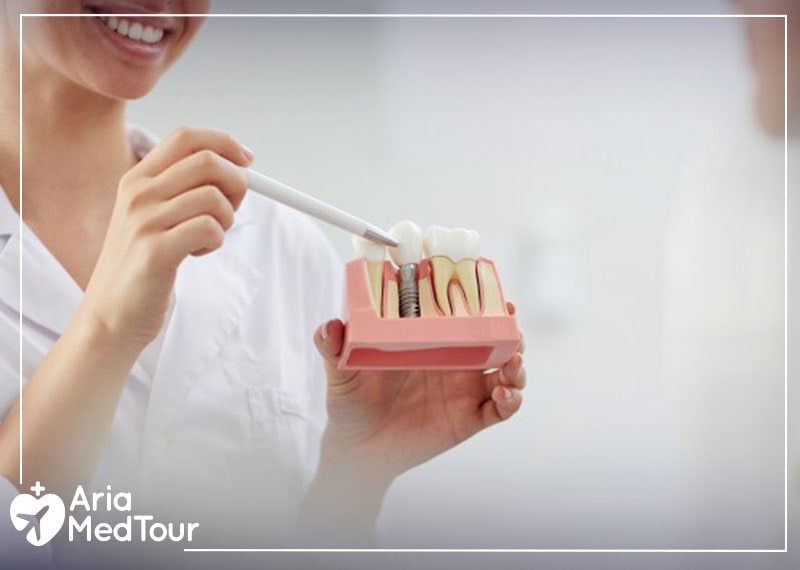
Dental implants are the best way to permanently replace missing teeth through a surgical procedure.
Quick dental implant recovery guide:
Here are post-operative instructions to be considered after dental implants:
- Avoid tobacco: to promote oral healing, it is strongly recommended to stop smoking.
- Avoid strenuous activities: To facilitate recovery, avoid strenuous activities for 7 days to 21 days after implantation.
- Practice good oral hygiene: In addition to being essential for your oral health, this is also important in maintaining dental implants. However, when brushing the surgical site, be gentle and do not apply pressure either with floss or toothbrush. In addition, avoid mouthwash for 24 hours after the dental implant.
- Avoid using toothpicks to clean the implant area. Also, you should not use any other sharp tools to clean teeth.
- Watch your diet: in the days following the operation, it is advisable to limit hard foods. Choose soft or even liquid foods to prevent any pressure on the area as much as possible. Also, avoid eating and drinking something that’s too hot.
- Sugar is the enemy of your implant and even all your teeth. Try to clear the remaining sugar from the implant area immediately after eating anything sweet.
- You should never eat with implants for the first 3 months after their placement. Chewing in the implant area is indeed made difficult, even painful. Additionally, early forces on the implants cause painless fibrosis which leads to implant failure.
- Pay attention to the sutures: whether by brushing or by your diet, be careful not to apply too much pressure on the sutures.
- Use all medications prescribed by your doctor and do not stop taking them without your doctor’s approval. Medications are usually given for a week.
- After dental implant surgery, it is better to use ice packs to prevent inflammation and swelling at the surgical site that usually happens 24 to 72 hours after surgery.
- Hold the gas pack that your doctor has placed on your tooth with a little pressure and then throw it away 2 hours after the procedure. After two hours, change the gas every 45 minutes.
To get a complete dental implant recovery guide and post-operative instructions, read the following to know everything in detail.
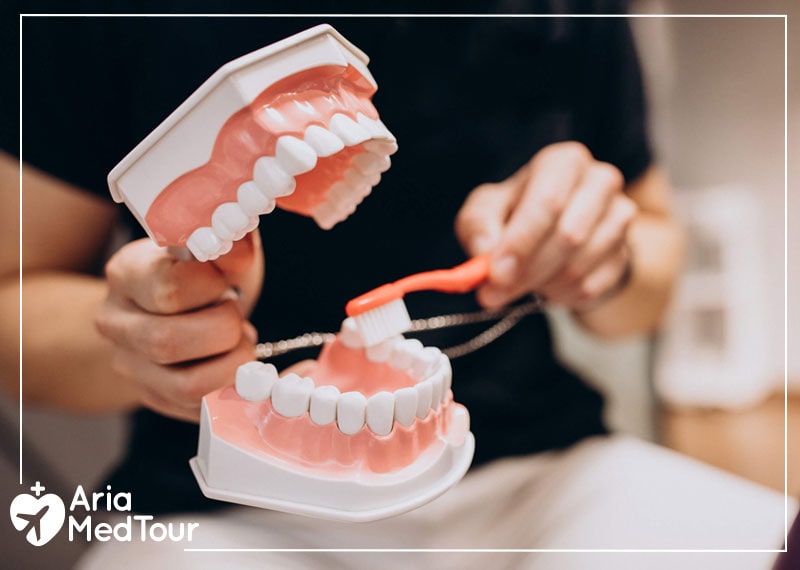
Avoid using toothpicks or any other sharp tools to clean the implant area.
Practice good oral hygiene after dental implants
One of the main signs that indicates you were successful in taking good care of your implants is having bright red and pink gums. This condition reflects that there is no infection in your gums or jawbone and the dental implant has been successfully placed in the gums. Here are the ways to help you practice good oral hygiene and taking care of implants:
Brush at least twice a day
To take care of your implant after the operation, you should brush your teeth carefully and thoroughly at least twice a day. This helps prevent the growth of bacteria, as well as tooth decay and oral diseases. It is very important to clean your mouth after everything you eat, especially if you eat sweets, acidic, or carbonated foods; Rinse your mouth and brush as much as you can.
You can use regular or electric toothbrushes to clean implants and teeth. Both are good options, but electric toothbrushes often clean tooth surfaces better and take less time. Interdental toothbrushes can also help remove food debris from the space between teeth.
Do not forget to floss
To maintain and take care of dental implants, brushing alone is not enough and you must floss. Although most people do not floss and are afraid to use it, flossing is the best way to get rid of food debris between teeth and prevent the growth and proliferation of harmful bacteria in the mouth. As a result, flossing can prevent tooth decay or perforation. Ask your dentist to introduce you to the best brand of toothbrush, floss, and toothpaste for dental implants so that you can take the best care of dental implants.
Water Flosser
A water flosser is a device that cleans between the teeth by the pulsating stream of water and can be effective in reducing plaque and inflammation. Find a water flosser with a non-metallic tip to use twice a day. You can also use a non-alcoholic mouthwash instead of water in it.
Stimulators
Stimulators can well stimulate healthy gum tissue, which is very important in preserving dental implants. The best stimulators are those that have a rubber tip to gently touch the gums.
Other methods
The following can also be used to take care of dental implants:
- Antibacterial non-alcoholic mouthwash.
- Pills that eliminate plaque buildup.
- Toothpastes specific for removing tartar and plaque.
It is also very important that a dentist cleans your implant from time to time. They should carefully clean all areas of your dental implants and surrounding tissues and teeth. The dentist will probably use scaling as well, a method that normally goes deeper into the teeth and under the gum tissue to remove plaque. It has a stronger effect than your daily dental hygiene routine. In addition, it is possible for the dentist to thoroughly check the condition and problems of your implants.
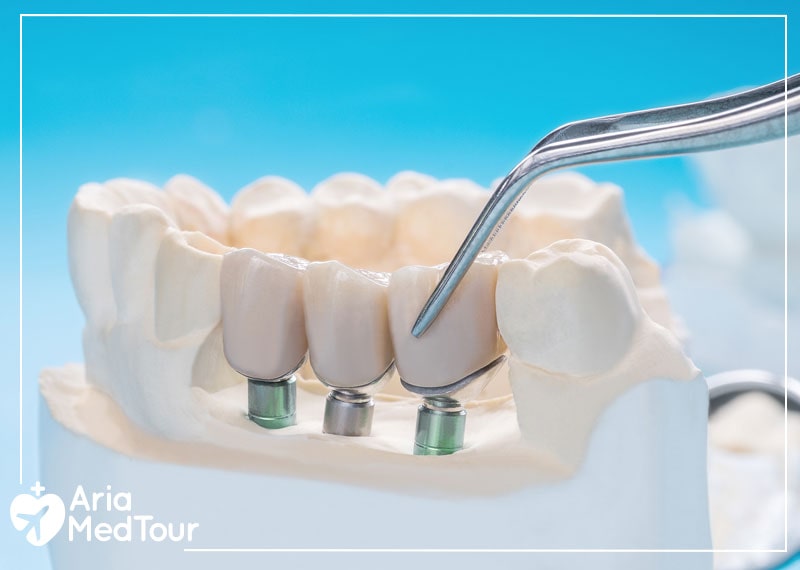
Practice good oral hygiene after dental implants.
Pain management after surgery
The feeling of pain varies from one patient to another. It also depends on the number of implants and their position. Some patients may experience some discomfort and pain for a maximum of 2 to 3 days. Just as painkillers are required for a few days after any kind of surgery, post-implant pain can also be relieved with simple painkillers such as acetaminophen. The period of taking painkillers after surgery is very short and, in many cases, they only need to be taken for one day. The highest rate of post-implant pain is usually reported by patients who have a tooth extraction and a dental implant at the same session. In cases where there is a slight infection at the end of the tooth root, the dentist prefers to extract the tooth first and replace the implant 2 to 3 months after the site has healed well.
The following are some painkillers that you can use after a dental implant:
- Use Advil 400 to 600 mg every 6 or 8 hours.
- Use Tylenol or Ibuprofen tablets every 4 hours.
- Vicodin, which is a combination of hydrocodone and acetaminophen, can be prescribed by a doctor.
- Percocet, which is a combination of oxycodone and acetaminophen, can also be used with a doctor’s prescription.
- You can also use Sockit gel at the dental implant place if you feel severe pain.
Dentistry Packages
Surgery + Hotel + Visa
Transfer + Interpreter
Swelling and bruising after dental implants
The most common complication after dental implant surgery is swelling and bruising on the face, especially in those who have had a bone graft. Many patients worry about swelling after surgery and think that the swelling is due to an infection, while it is due to incisions made in the gums. Swelling, especially after a bone graft, is a natural part of the healing process, which is usually accompanied by subcutaneous bleeding and bruising on the skin in such cases.
Swelling of the face increases 3 to 4 days after dental implant surgery and then decreases rapidly. This swelling of the face may make it difficult for you to open your mouth or swallow. You may even notice bruising and bleeding on your face at the site of the surgery, or a burning or numbness on your tongue or lips near where the surgery was performed. Even if you have implants on both sides of your jaw, it will still not be abnormal if you feel more swelling and discomfort on one side.
In most cases, you can use an ice pack compress in the first 24 hours after surgery to reduce and minimize the swelling of your face. If both sides of your face are affected, change the ice pack every half an hour. Also, when sleeping, use extra pillows to keep your head higher so that less blood collects in the operated area that prevents excessive swelling. In some cases that the swelling is high, anti-inflammatory drugs can be used with the dentist’s prescription.
Several factors have a direct impact on the rate of swelling and bruising after dental implants. The first factor is the size of the surgical site, the larger it is, the more swelling and bruising. The second factor is the patient’s age. In older patients who have lost the firmness in the face and neck tissues, this swelling and bruising can be very severe and spread to other areas including the neck and under the eyes.

The most common complication after dental implant surgery is swelling and bruising on the face
Bleeding after dental implants
Some bleeding from the surgical site after a dental implant is normal and may occur within the first 48 to 72 hours after surgery. The doctor bandages the surgical site. All you have to do is put some pressure on this sterile gauze in the first hours after the operation to help stop the bleeding.
If the bleeding is heavy, remove large clots from your mouth very slowly. Next, quadruple two sterile gauze pads, or wrap a regular wet tea bag in sterile gauze and place it on the bleeding area. Press the gas firmly on the area for an hour, and repeat if the bleeding continues. In most cases, this way dramatically reduces bleeding. If bleeding still continues despite using this method, call your dentist for guidance.
Remember that collecting saliva and flushing it out or rinsing the wound can provoke bleeding or make it worse and may cause pressure on your dental implant.
You may also have nosebleeds if the implant is in the maxilla or if you have had a sinus lift surgery as well. Do not try to expel the blood, just use pressure.
Taking antibiotics after dental implants
You will need to take antibiotics after a dental implant because it prevents infection at the site of the dental implant or bone graft. It is very essential that you take medicine prescribed by your doctor until the end. If you experience reactions such as itching or severe skin irritation after taking antibiotics, stop taking the medicine and call your doctor.
Keep in mind that some antibiotics may interact with birth control pills. So if you want to prevent pregnancy, in addition to oral contraceptives, be sure to use another method of contraception during the menstrual cycle.
You May Like to See Before & After Photos of Dentistry
You May Like to See Before & After Photos of Dentistry
Time to start daily activities after dental implants
You can do light activities as soon as you feel you have the ability. But your doctor will usually ask you to postpone strenuous activity for about three days as these kinds of activity after surgery leads to increased heart rate and bleeding. In addition, you may not be able to eat well for the first few days, which can make you weaker than normal. You should also avoid activities such as driving that require alertness, precision, and coordination while taking strong painkillers.
What to eat after dental implants
Dental implants surgery diet has a great impact on the recovery process and implant treatment success. On the day of surgery, you should consume only soft foods and liquids. Fortunately, you can soon return to your normal diet, unless your dentist orders otherwise. Avoid carbonated drinks and hot liquids for up to 48 hours after dental implants. Drink plenty of water to speed the recovery process.
- Read More: What to Eat After Dental Implants Surgery?
Dental implant post-operative instructions
The first 48 hours after dental implant
Implant care is critical in the first 48 hours after dental implant, and most symptoms and allergies become apparent at this time. In the early hours after surgery, the patient should be careful not to move the gauze bandage or put pressure on the implants. Under no circumstances should the dressing be removed until one hour after surgery as it will be accompanied by severe and continuous bleeding of gums. In case of heavy bleeding, put a sterile gauze on the tooth and remove it after 30 minutes. After that, change the sterile gas every 30 to 45 minutes.
In the first 48 hours after dental implants:
- Do not consume hot drinks or food.
- Do not drink alcohol or smoke at all.
- Cool the surgical site alternately with an ice pack.
- Do not rinse your mouth, and only spit out gently if necessary.
- It is strictly forbidden to use a toothbrush for at least 72 hours in implant areas.
- Gargle with saline solution 3 to 4 times a day for 24 hours after implant placement.
You may experience the following symptoms in the early days:
- Fluid discharge of the gums
- Continuous bleeding
- Swollen gums
- Pain
The onset of these symptoms is a sign of wound healing and bone fusion with the implant base and will disappear completely within 1 to 2 weeks after dental implant surgery. To speed up the healing process, you should treat your wounds and cuts on your gums gently and avoid manipulating them.
3 to 7 days after dental implant
Rest has the greatest impact on the success of the osteointegration process. Some areas may be red or have some bleeding, but this is nothing to worry about. These symptoms will disappear after 2 to 3 days. To relieve redness and bleeding gums, you can put a warm towel on the surgical site from the outside.
Some patients notice bumps in their mouth after dental implant. In this case, too, there is usually no need to worry. However, you can contact your dentist and discuss your problem. Other symptoms you may experience are dry lips, cough, and tightening of the jaw muscles, which occur after dressing and are normal.
Stay on a soft, light diet. Brushing (carefully) your teeth after each meal and between meals is recommended. When brushing, be careful not to damage the stitches. You should also use mouthwash after drinking and eating to prevent germs and plaque from accumulating in the implant area. To rinse your mouth, you can dissolve a tablespoon of salt in a glass of warm water and gargle it. If chlorhexidine mouthwash is prescribed, brush first, then rinse your mouth with warm saltwater, then gargle the disinfectant mouthwash for half a minute and do not drink or eat for half an hour. If you do not have absorbable sutures, go for removal 7 to 10 days later.
2 to 6 weeks after dental implant
Practice good oral hygiene, note that regular use of mouthwash should start the day after surgery and become a regular part of your oral hygiene routine. This is especially important in single-stage implants where the screw is located outside the gums.
Do not smoke under any circumstances. Clean your temporary prosthesis after each meal. The use of removable prostheses is subject to modifications on them and the use of soft liner or tissue modifiers (Tissue Conditioner) inside them. This is done in order not to put pressure on the implants.
Before the final denture is installed on the dental implant, it is best to use the following foods:
- Liquids, baked potatoes, boiled eggs, rice, minced meat, pasta, pasta, fish, soft bread. You can also chop or grate vegetables and fruits and eat them with caution.
The following foods are also prohibited:
- Hard meat (example: beef), dense bread, nuts, chewing gum.
In case of high pressure, the prosthesis temporarily peels off or breaks, or the dental implant does not fuse properly to the bone.
If the gum-forming screw that is fastened to the fixture during single-stage implant surgery and is in fact the outer gingival part of the implant loosens, go to the office immediately. Do not worry about the gingival screw or abutment loosening or coming out. Just keep the area clean to heal the gums. When you see a dentist, the screw will be tightened again.
Just as after a bone fracture, the pieces of bone are joined together and the patient is told that the area should not be under any pressure, after the dental implant, this area should not be under any pressure. On average, complete recovery in the mandible takes two to three months, in the maxilla three to four months, and if the bone graft is done, it takes six to eight months.
The effect of smoking on dental implants
Smoking can negatively affect the success of dental implants. The ideal solution is not to smoke until a week before the dental implant. It is also recommended that you avoid smoking for at least two months after the surgery. This helps the adaptation process go smoothly without the negative effects of smoking. If you smoke before, during, and after dental implant procedures, the risk of complications and treatment failure is greatly increased.
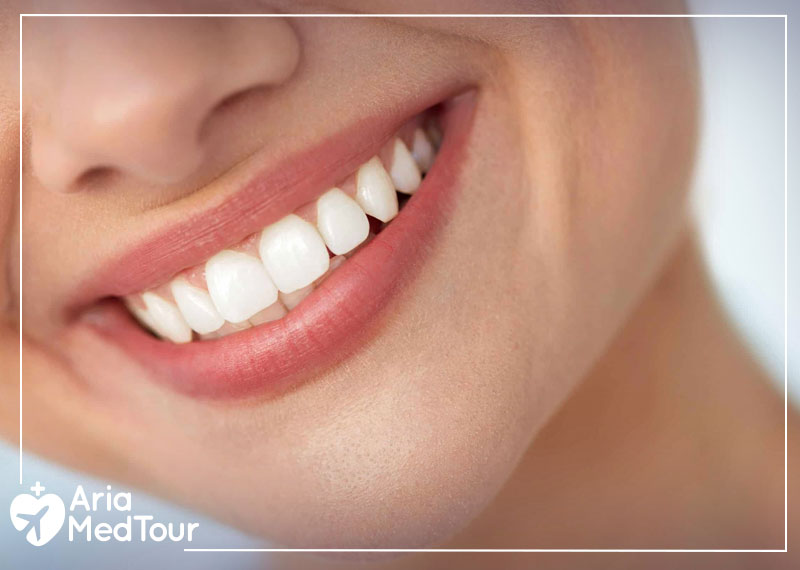
It is recommended that you avoid smoking for at least two months after the surgery.
The final note!
Implants are permanent, so is implant care!
Because these implants are permanent and will last for the rest of your life, you should also keep them in the best condition by cleaning them daily along with other teeth and seeing your dentist regularly. And with over 100 viruses and bacteria in your mouth, you should always keep your teeth clean and free of plaque.
Implants are good, but they can wear out like other teeth!
Although implants do not decay or make any cavities, they are not staining resistant and, like real teeth, can change color. For this reason, practicing good oral hygiene before, during, and after dental implants is essential not only to maintain the health of the gums and teeth but also to maintain the appearance of the implants.
Learn to smile with your new tooth
A few months after placing the implant, you will be able to smile again. Your implant looks like a real tooth and your teeth are complete again, ready to show off without any discomfort. Depending on the prosthesis that has been placed on the implant, an adaptation period is sometimes necessary. This is especially the case with removable dental prostheses. Otherwise, fixed prostheses such as crowns, and bridges will not cause any discomfort, except that you will have to get used to these new, healthy-looking teeth again.
Share this article:
Related Articles
Feel free to express your opinions or ask your questions regarding the article

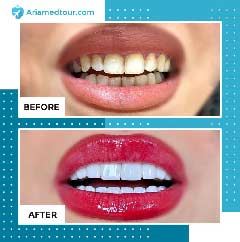
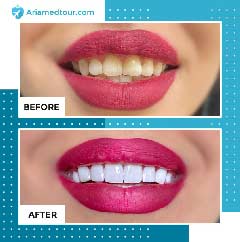
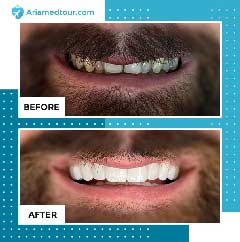
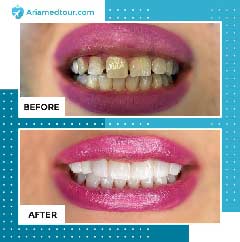
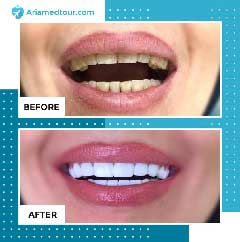
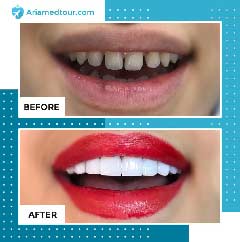
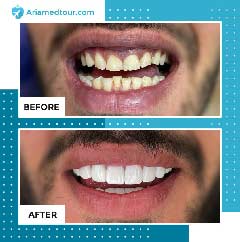
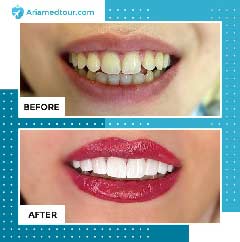
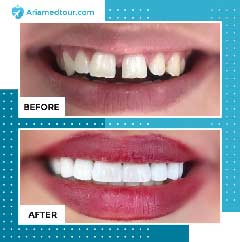
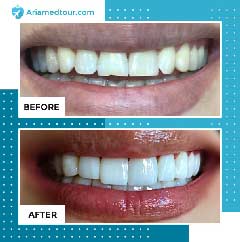
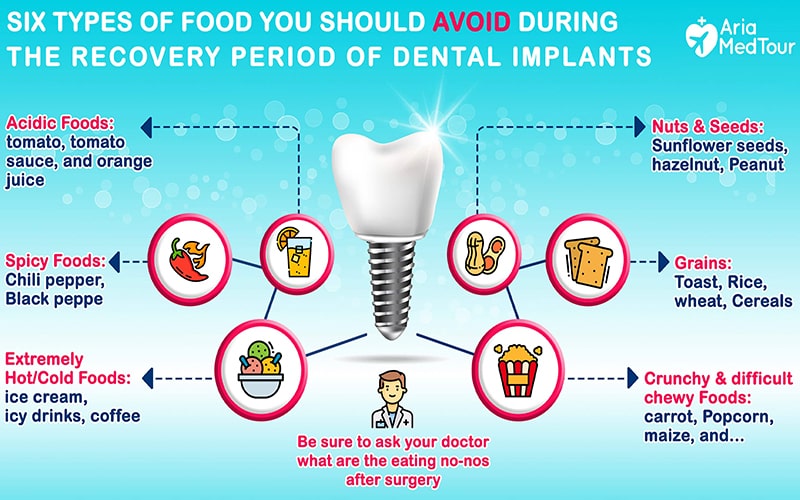
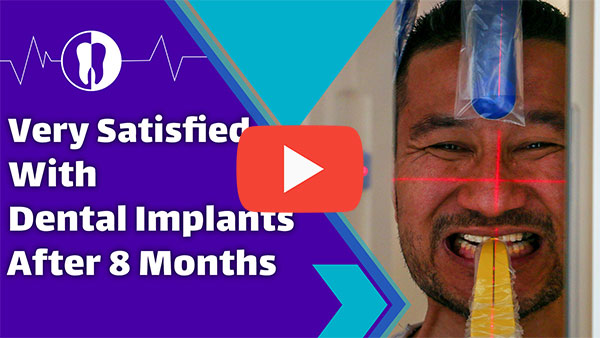



I read this article thank u for share it . my father recently had implant . his doctor told him some of these tips about his teeth
Thanks for your feedback. We are glad that it was helpful for you.